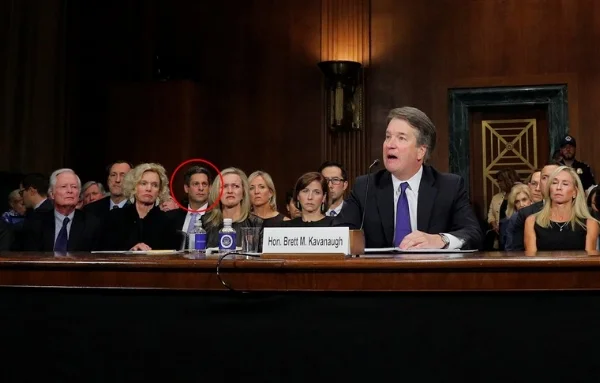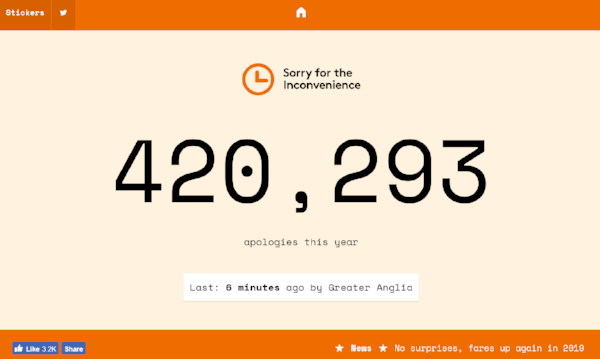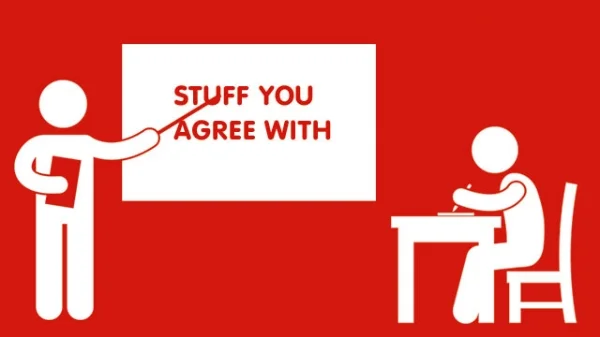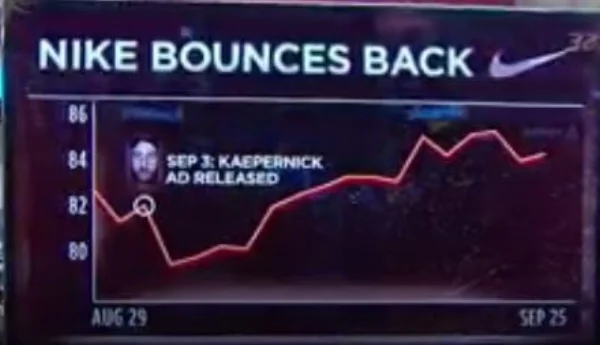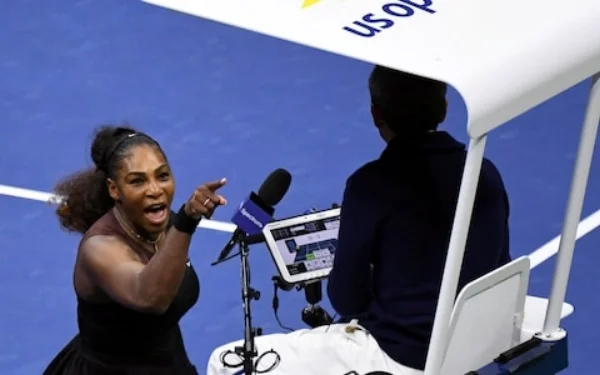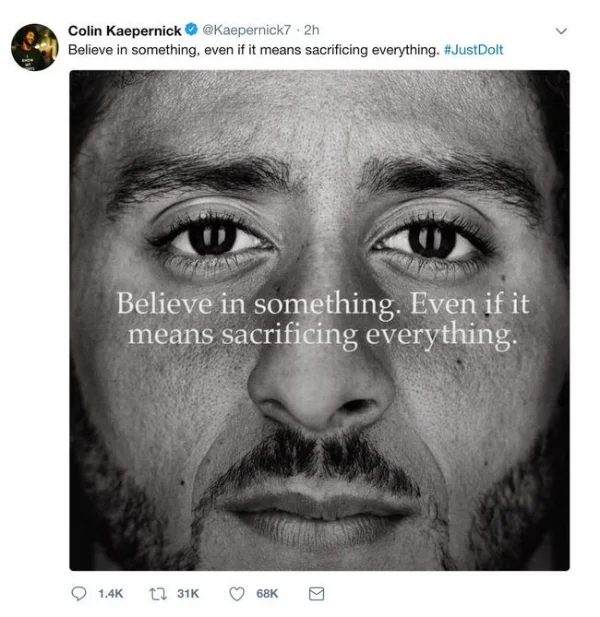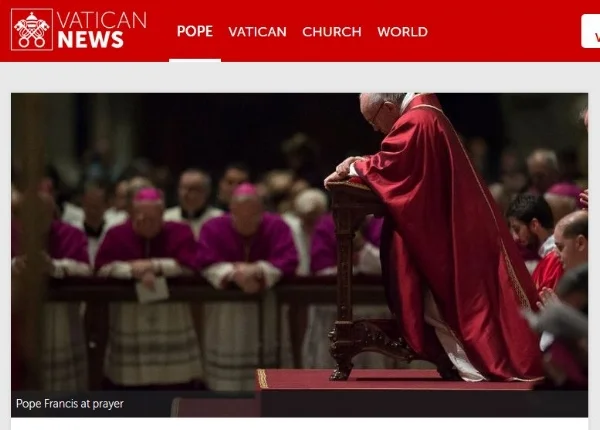Teacher Recommendation Letters Influence Harvard Decision
Details about Harvard’s admissions process are surfacing during the trial about how the university’s “race-conscious” decision policy may adversely affect Asian-Americans. The entire guidebook for admissions decisions in 2014 was entered into evidence.
This week, Harvard revealed that white students typically receive “somewhat stronger” recommendation letters from teachers and guidance counselors than Asian-American students, which affects each group’s “personal rating.” The personal ratings on based on characteristics such as kindness, courage, and leadership. When writing letters, reviewers are asked to assess “consistent testimony of an applicant’s unusual effervescence, charity, maturity, or strength of character.”
Back in 1990, the US Department of Education’s Office of Civil Rights criticized Harvard’s practice of using a personal rating and admissions officers’ stereotypical comments of Asian-American students. The same issue seems to be presented here, with comments from teachers and guidance counselors.
Discussion:
How valuable do you think teacher and guidance counselor letters of recommendation are in the admissions process? How much weight should they carry in the overall decision?
By definition, the personal rating includes subjective evaluations. Should universities try to avoid subjectivity in the admissions process? Why or why not?
Facebook Policy Executive Sat Behind Kavanaugh
Joel Kaplan, Facebook’s vice president for global public policy, sat behind his friend, Brett Kavanaugh, during the charged hearings to determine whether he would win support as the next Supreme Court justice. Because of his position at Facebook, employees questioned his loyalties and whether it was appropriate for him to be so visible during the judge’s testimony about whether he sexually assaulted a woman as a teenager.
His appearance was a “surprise” to employees, and hundreds wrote about their concerns on Facebook’s intranet site. One employee wrote, perhaps expressing the sentiment of Facebook’s liberal employees:
“Let’s assume for a minute that our VP of Policy understands how senate hearings work. His seat choice was intentional, knowing full well that journalists would identify every public figure appearing behind Kavanaugh. He knew that this would cause outrage internally, but he knew that he couldn’t get fired for it. This was a protest against our culture, and a slap in the face to his fellow employees.”
Kaplan defended participating, referring to their 20-year friendship, and CEO Mark Zuckerberg said he didn’t violate any company policies by attending, although he did say he would not have made the same decision. Employees wanted to hear from COO Sheryl Sanberg about Ford’s accusations, and she was not forthcoming, according to a Times article. But she did comment on Kaplan’s attendance:
“As a woman and someone who cares so deeply about how women are treated, the Kavanaugh issue is deeply upsetting to me. I’ve talked to Joel about why I think it was a mistake for him to attend given his role in the company.”
Discussion:
Read additional Facebook messages in the Times article. How would you summarize employees’ concerns?
What’s your view of Kaplan’s attendance? Consider the “optics” in addition to company policy.
Some might say that Kaplan was being authentic by sitting behind his friend. Do you agree with this view? Why or why not?
Which character dimensions are illustrated by this story?
British Rail Company Apologies
Great Western Railway is tripping over itself apologizing for thousands of canceled and late trains. Apologies by British train organizations are so common that a web designer created a site, https://www.sorryfortheinconvenience.co.uk, to chronicle statements, now totaling more than 420,000.
A look at the railway’s Twitter feed shows two failures but no apology. Maybe the organization is catching on: over-apologizing isn’t a good strategy. At some point, customers just want problems fixed.
Discussion:
How can a leader know when the organization is apologizing too much?
Take a look at the GWR Twitter feed. How would you advise the organization to improve its communications?
What leadership character dimensions is GWR demonstrating and failing to demonstrate with its apologies?
Are U.S. Campuses Coddling Students?
A new book, The Coddling of the American Mind: How Good Intentions and Bad Ideas Are Setting Up a Generation for Failure, explores the impact of political discourse on U.S. college campuses. The book is an expansion of an Atlantic article in which Jonathan Haidt, one of the book authors, disputed “trigger warnings” and other anxiety-avoiding tactics.
The authors are clear that harassment and discrimination are wrong, and that students who experience them should report the incidents. But, according to a Bloomberg article, we may lose the ability to communicate with each other:
“They worry about the What worries him is the looseness of the term ‘bias’ and the idea that students are urged not to work out their concern with the alleged perpetrator but to report it directly to the authorities.”
Also concerning the authors is the high percentage of liberal faculty members. A recent study shows that 39% of the most elite liberal arts schools have no Republican professors. The Bloomberg writer notes the possible negative effect:
"Critics argue that the atmosphere of liberal orthodoxy increases the risk that graduates will enter the workforce without knowing how to confront political viewpoints different from their own.”
Discussion:
What’s your view? Are we coddling students, or do they need more protection and “safe spaces”?
How would you describe the differences among discrimination, harassment, and bias?
How might the issue of protecting people from bias contribute to sexual harassment in the workplace? How can we help people sort out problems at an interpersonal level?
Nike Addresses Kaepernick on Earnings Call
On a quarterly earnings call, Nike CEO Mark Parker addressed head on the new ad campaign with former NFL player Colin Kaepernick. Following strong first-quarter earnings and revenue growth, Parker expressed confidence in Nike’s sponsorship agreement, particularly related to social media engagement:
“How we look at it is how do we connect and engage in a way that’s relevant and inspiring to the consumers that we’re here to serve. Our brand strength ... is a key dimension that contributes to the ongoing momentum that we’re building across the Nike portfolio.”
About an ad campaign that also features athletes Serena Williams and Lebron James, Parker said,
“These are actually very inspiring athletes, and again we feel like that campaign has delivered on that message in a way that’s really connected with people around the world.”
But the stock did fall in after-hours trading after the earnings report. Analysts say investors expected more than 10% revenue growth, and they note this is the first quarter since a sexual harassment scandal hit the company.
Discussion:
The company executives tout the campaign results on social media. How much do these results matter compared to the earnings report?
Maybe this is another example of how quarterly reports aren’t the best measure of company performance. Should we be looking longer term? Why or why not?
Serena Williams Controversy
Serena Williams lost the U.S. Open women’s final tennis match and criticized umpire Carlos Ramos. A Washington Post article delves into “whether sexism, conscious or not, skews the playing field.”
The writer offers the following evidence:
Ramos still has support from the International Tennis Federation.
London Telegraph published data showing that, for the past 20 years, men received code violation fines almost three times as often as women. The writer acknowledges that men’s games are longer, but she says this doesn’t account for the entire difference.
An Australian newspaper criticized for what some consider a racist image of Williams boldly republished it on the cover with the headline, “Welcome to the PC World.”
The writer offers more evidence on both sides of the issue and suggests changes within the association.
Discussion:
Read more about the situation if you are unfamiliar. What could Williams and Ramos each have done differently?
What’s your view overall? Was Williams treated unfairly? Did she react appropriately?
How do you assess Williams’ response after the incident? How well did she recover from the so-called “outburst”?
What leadership character dimensions are illustrated by this situation?
JD.com CEO Arrested for Sexual Misconduct
Richard Liu, founder and CEO of Chinese e-commerce company JD.com, was arrested in Minneapolis for sexual misconduct. Because of his high profile and billionaire status, Liu’s arrest was the most popular topic of conversation on social media in China last week.
Two people describe a case involving a student at the University of Minnesota, part of a joint doctoral program in business administration with Tsinghua University. Liu was released without bail and has returned to China. He denies any wrongdoing, and JD.com posted a statement in Chinese, translated by a student:
Sunday, Sep. 2, 2018
We have noticed that there are rumors and false accusations about Mr. Qiangdong Liu on Weibo (Chinese social media site, similar to Twitter) recently. We hereby declare as follows: Liu was falsely accused while in the US on a business trip, but the police investigators found no misconduct and that he would continue his journey as planned. The company will take necessary legal action against false reporting or rumors.
Monday, Sep. 3, 2018
So far as we know, Mr. Liu was arrested on Aug. 31, 2018 in Minneapolis for investigation. He was released from custody shortly. There was no accusation or bail required for the release. Mr. Liu has returned to China and will resume his business activities as originally planned.
In addition to the stock price drop and embarrassment this causes Liu and JD.com, the company may have a governance problem. Liu is required to attend board meetings in person (although he may be able to join via video or telephone). Without him, as an 80% voting rights owner, the board may be unable to make decisions for the business.
A New York Times article focuses on China’s fascination with self-made billionaires as celebrities. Online discussions featured photos of Jack Ma laughing at Liu’s trouble.
Discussion:
I don’t see a statement or press release from Liu or from the company in English. Should Liu or the company publish something at this point on the website? Why or why not?
What should the company do now to manage through this crisis?
How does the Chinese reaction compare to situations in the United States? Can you think of a similar situation when Americans were fascinated by a leader’s hardship?
Changes at Riot Games
Following allegations of sexism, Riot Games has apologized and is making changes. A long report by Kotaku placed blame mostly on the fast company growth and sexist working environment.
Trying to shed its “bro-culture” stigma, leaders have acknowledged that the company could be more inclusive. In a long statement last month titled, “Our First Steps Forward,” the company starts by apologizing to “to all those we’ve let down.” The statement then lists steps the company will take around inclusion initiatives, staffing, training, and so on
In a more recent statement, the company announced hiring a “leadership and strategy expert,” Frances Frei, who had also worked with Uber. The statement includes this quotation from Frei:
“After spending time with Riot’s leadership and many others across the organization, it became clear that Riot is truly putting everything on the table and committing to evolving its culture. In my interactions with Rioters, I’ve seen extraordinary levels of engagement on these issues across the company. Every Rioter with whom I’ve met truly cares about inclusion, which means real change is possible. Riot isn’t interested simply in fixing problems on the surface, it has the ambition to be an industry leader and to provide a roadmap for others to follow. I share that ambition and am eager to help Riot navigate this process.”
Discussion:
Read Kotaku’s report. How credible do you find the investigation and reporting? What could increase the credibility?
Assess Riot Games’ statement. Who is the audience and what are the communication objectives? How do the organization, writing style, and tone affect your assessment?
Now assess the statement about Frei. What’s your view of including Frei’s statement? What else, if anything, should be included in the statement?
Overall, how well is Riot Games demonstrating accountability? What other leadership character dimensions are demonstrated?
Disneyland Employees Speak Out
Disney employees are on screen in a New York Times op-ed video, "I Work at the Happiest Place on Earth. Why Can’t I Pay My Rent?" A 30-year concierge and a cosmetologist are featured more prominently. One is currently living in her car, and another says, tearfully, that she has spent time in her car. Both say they love their jobs, but along with 75% of Disneyland employees, they can't afford to pay "basic expenses every month." Data comes from a questionnaire and report, "Working for the Mouse."
The argument is for Disney to pay a living wage, and the call is for citizens to vote for an Anaheim proposal that affects Disneyland employees and some local hotel workers. In the video, one claim is that real wages have declined because of inflation—what $15 per hour bought seven years ago isn't the same today.
Business leaders who are fighting the measure say that the increase would hurt jobs. One local Chamber of Commerce member argued, "We estimate 3-4,000 jobs lost over next year or two by companies having to absorb this new increased cost. They're going to reduce hours and reduce jobs."
Senator and former presidential candidate Bernie Sanders is also featured in the video. He is proposing a bill he calls "Stop BEZOS" to tax Amazon and other large companies for public assistance received by their employees. The idea is for companies with 500 or more employees to pay the government back for support paid to their employees who cannot survive on earned wages.
Discussion:
- How well does the video make the case for higher wages? Which are logical and which are emotional appeals? What evidence is presented?
- Assess the credibility of the questionnaire and report, "Working for the Mouse." From your assessment, what makes the report both credible and questionable? In what ways does the report reflect business communication standards, and in what ways does it fall short?
- Research the impact of raising wages on industry, for example, this Cornell report. What's your view of this argument? It's a complicated question because of different industries, locations, labor supply, rates, etc.
- In what ways do the employees featured in the video demonstrate courage? What risks did they take in appearing on screen?
Nike Takes a Chance on Kaepernick
Former National Football League quarterback Colin Kaepernick will be the new celebrity face of Nike's "Just Do It" campaign. Kaepernick was the center of controversy when players were both complimented and criticized for "taking a knee" to protest racism and promote social justice.
Nike and Kaepernick already had a sponsorship deal, but this new contract extends it. The deal may be "awkward," to use The New York Times's phrase, because the NFL has not been able to stop player protests, to the dismay of President Trump and others.
Also, Kaepernick hasn't played in the league since 2016 and has an active grievance, accusing the league of conspiring to prevent him from playing.
But neither Nike nor Kaepernick are shying away from the message. The first ad shows Kaepernick with the caption, "Believe in something. Even if it means sacrificing everything."
As part of the deal, Nike will contribute to "Know Your Rights," Kaepernick's foundation to "fight oppression of all kinds globally, through education and social activism.
Discussion:
What risks is Nike taking with this contract? Do you believe the campaign will be well received, divisive, or something else?
Nike didn't respond to The New York Times for comment about the story. Should the company include a comment or make a statement? Why or why not?
What leadership character dimensions are illustrated by this story?
Archbishop Calls for Pope's Resignation
As more allegations of sexual abuse within the Catholic church become known, the most senior levels of the organization are facing new challenges. Last week, Pope Francis wrote a letter chastising abusers and calling on the Church to do better. Today, a former senior Vatican, who was an ambassador to the U.S., accused the pope of knowing about and covering up abuse cases since 2013. He is calling on the pope to resign.
The situation involves Archbishop McCarrick, who resigned as cardinal in July. McCarrick is accused of sexually abusing seminarians, and the Pope is accused of "rehabilitating" him rather than disciplining him and removing him from his position.
Archbishop Carlo Maria Viganò explains his reasoning in documented "testimony," including this segment:
Image source of Pope Francis and Archbishop McCarrick.
Discussion:
- Should the pope resign? Why or why not? How does this situation compare to corporate examples? Consider the hierarchy and relationships.
- In what ways is this situation a matter of integrity?
- Viganò uses the word parrhesia. What does this mean, and how does this relate to business communication?
- Which other leadership character dimensions are illustrated by this situation?
School Policy for "Natural" Hair
An 11-year-old black girl was sent home from school because her hair didn't fit guidelines for "natural" hairstyles. Over the summer, Christ the King Parish School in Terrytown, Louisiana, established a new policy, published in its handbook, banning hair extensions, which Faith Fennidy was wearing.
Videos show Fennidy crying, and critics called the policy discriminatory. But the Archdiocese of New Orleans defended the school's decision:
"This policy was communicated to all parents during the summer and again before the first day of school, and was applied to all students.
"The school offered the student's family an opportunity to comply with the uniform and dress policy and the family chose to withdraw the student; the student was not suspended or expelled."
A representative for the school also said, "We remain committed to being a welcoming school community that celebrates our unity and diversity." Fennidy decided not to return to the school.
Discussion:
- What's your view of the policy? Do you find it appropriate, discriminatory, or something else?
- How do attire policies in companies compare? What examples of similar policies have been problematic for companies?
- Read more about the situation on BusinessInsider. How well did the school handle the situation? What, if anything, could have been done differently?
Pope Francis's Letter
Pope Francis has joined the conversation about sexual abuse in the Catholic church after 1,000 victims and 300 perpetrators were identified by a grand jury investigation report in Pennsylvania. The report also revealed how the church systematically covered up the abuse over a 70-year period.
In an open letter, which is posted on Vatican News, expresses empathy early and often, for example, in this passage:
In recent days, a report was made public which detailed the experiences of at least a thousand survivors, victims of sexual abuse, the abuse of power and of conscience at the hands of priests over a period of approximately seventy years. Even though it can be said that most of these cases belong to the past, nonetheless as time goes on we have come to know the pain of many of the victims. We have realized that these wounds never disappear and that they require us forcefully to condemn these atrocities and join forces in uprooting this culture of death; these wounds never go away. The heart-wrenching pain of these victims, which cries out to heaven, was long ignored, kept quiet or silenced.
Pope Francis's letter follows one by Pope Benedict XVI in 2010, when abuse in Ireland became widely known.
Discussion:
- Compare the two letters. In what ways are they similar and different? How might the circumstance and timing affect each approach?
- How is the letter organized? How would you describe the tone?
- Which character dimensions does Pope Francis demonstrate in his letter?
Men More Likely to Be Called by Surname Only
Multiple studies show that men are more likely than women to be referred to by only their last name, while women are referred to by their full name. We are likely to say "Trump" yet "Theresa May." The studies include references to politicians, teaching faculty, and scientific researchers.
The differences are most striking in the computer science field, in which only 20% of women but almost 50% of men were referred to by last name only.
Trouble comes when, as some of this research confirms, people view those referred to by only their last names as "more famous and eminent, a judgment that could result in more awards, funding, and other career benefits."
This research reminds me of a recent New York Times article that explained how Wimbledon lists women on its board of champions. Before marriage, Chris Evert was listed as "Miss C.M. Evert." After marriage, she became "Mrs. J.M. Lloyd." Announcers refer to "Mrs. Williams," yet Roger Federer is simply "Federer" and listed on the board as "R. Federer," married or not.
Discussion:
- To what would you attribute the difference in how people are referred?
- Have you observed this difference yourself, perhaps in other settings? Consider working environments and Hollywood, for example.
- Do you find this research and the tennis calling significant? Why or why not?
What Is "Dehumanizing" Speech?
The New York Times reports Twitter's struggle to define what constitutes "dehumanizing" speech. Apparently, the only agreement among Twitter's team members is that the decision is "incredibly complex."
Categorization is critical, as the company has a reputation as a sometimes dark place of trolls and harassment. Yet this week, Apple, Facebook, YouTube have expunged content from Alex Jones's Infowars, which is known for spreading misinformation, including that the shooting at Sandy Hook was a hoax. You can imagine how this angered families of lost children.
In a tweet, CEO Jack Dorsey explained Twitter's decision to keep Infowars content, but employees, particularly, have not responded positively.
Twitter is in a difficult spot because, on the other hand, sites have been criticized for censoring conservative views. Del Harvey, the company's VP of Trust and Safety, wrote an email to employees further explaining the company's rationale.
Discussion:
- How would you define "dehumanizing" speech? What character dimensions are involved?
- What persuasive strategies does Harvey use in her email to employees? Which are most and least convincing and why?
- What is your view about Infowars content? Should Twitter remove it from the site as other social media companies have done? How might your own political views factor into your thinking?
Open Offices Reduce Communication
Despite wishful thinking for better communication, new research shows that open offices may reduce productivity and decrease face-to-face conversations. Researchers at Harvard found that employees used online tools, such as instant messaging and email, more frequently and reduced their in-person discussions about 72% when open office floor plans were implemented. For the study, employees wore sociometric badges to track their interactions, including audio, motion, and distance.
What accounts for the change? The authors explain, "[R]ather than prompting increasingly vibrant face-to-face collaboration, open architecture appeared to trigger a natural human response to socially withdraw from officemates and interact instead over email and IM."
The study raises issues of certain types of cubicles, which negatively impact our need for privacy and cause distractions. Instead of open offices, the authors suggest communal lunch tables and simultaneous coffee breaks to increase socialization.
Discussion:
- What's your reaction to this study: obvious, interesting, or something else?
- What has been your experience with open office floor plans? How did the design affect your work and interactions?
- What other ideas do you have for increasing face-to-face communication at work?
CEO Activism
Weber Shandwick's third annual report explores CEO activism, which Brian Moynihan, CEO Bank of America, defines and supports:
“Our jobs as CEOs now include driving what we think is right. It’s not exactly political activism, but it is action on issues beyond business.”
The report found that almost half of Americans "believe CEO activism influences the decisions and actions of government," and almost half of consumers "would be more likely to buy from a company led by a CEO who speaks out on an issue they agree with." Millennials, particularly, prefer CEOs to speak out on issues, and CEOs with more social media accounts have better stock performance for their company.
A Wall Journal Street writer observes that leaders rarely make a business case for issues, even if their company would benefit. Instead, they are speaking to consumers directly to change hearts and minds.
Top issues for CEOs include training, equal pay and sexual harassment, and CEOs are avoiding gun control, nationalism, marijuana legalization, and abortion."
A Forbes article offers this advice for CEOs:
- Develop an authentic voice and quick actions
- Connect your customers with your activism efforts
- Align activism efforts with a company’s mission
- Be willing to act against your own self-interest
Discussion:
- What are the risks and rewards of activism to a CEO and to the company? How does integrity factor in?
- What examples have you seen of CEOs speaking out? How do you assess the situations? How did you feel about the gestures?
- Read the Weber PPT deck. What principles of business report writing are followed, and what could be improved?
More Research Support for Gratitude
New research, once again, illustrates the value of writing thank-you letters. A recent study shows that senders underestimate the impact of sending a letter of gratitude, which prevents them from writing one. People also worry that letters will be scrutinized and that receivers will feel awkward, but none of these perceptions align with the reality.
In their study, Amit Kumar and Nicholas Epley, at the University of Chicago, compared how "expressers" felt about writing a letter with how people felt receiving them. Receivers felt more surprised about receiving the letters and about the content, more positive, and less awkward than the senders thought they would be. Most expressers spent less than five minutes writing a letter.
Understandably, writers in the study doubted their own competence. Participants answered questions such as, “To what extent were you able to express your gratitude using words that were just right?” and “After your recipient reads your letter, how articulate do you believe they will think your expression of gratitude is?” People who received messages rated senders as more competent than senders rated themselves.
This study builds on Kumar's earlier work showing that reflecting on experiences rather than on material goods makes people feel better and act more generously toward others.
Discussion:
- Have you sent a letter of gratitude in the past couple of years? What inspired you to send it? How was it received?
- Have you thought about sending a letter but did not? What stopped you? Do the findings in this study encourage you now? The authors hope so!
Analyzing Soccer Players' Body Language
Why do soccer players put their hands on their heads when they mess up, a common and seemingly universally gesture. According to Jessica Tracy, professor of psychology at the University of British Columbia, it's an example of vulnerability:
“It’s going to tell others, ‘I get it and I’m sorry, therefore you don’t have to kick me out of the group, you don’t have to kill me.’”
Tracy also describes the connection between the gesture and shame:
“You have the head in the hands — that’s shame. You have the constriction of the body, in the way that the player is moving his arms around his head, almost to make himself smaller. Those are very classical shame display elements.”
In his book, The Soccer Tribe, zoologist Desmond Morris analyzes more aspects of soccer behavior.
Discussion:
- In what ways does the gesture illustrate the value of vulnerability? What do you see as the relationship between shame and vulnerability?
- What other behaviors have you observed in athletes? What do you think they mean?
- How does this story relate to body language in business settings? What gestures have you noticed in a work environment?
Communicating Strategy at HBO
A New York Times article gives us a window into how leaders are telling employees about the future of HBO. The article describes a town hall meeting John Stankey, an AT&T executive, held for about 150 employees. When AT&T acquired Time Warner in 2016, HBO was part of the deal, so employees are likely anxious to know the company's plans. The Times article describes the meeting as "a straight-shooting, hourlong talk."
Stankey communicated a clear theme throughout his talk: increasing viewer engagement:
We need hours a day. It’s not hours a week, and it’s not hours a month. We need hours a day. You are competing with devices that sit in people’s hands that capture their attention every 15 minutes.
Perhaps understandably, the talk may have included some contradictions. Here are two subsequent paragraphs in the Times article:
They pledged to take a hands-off approach to the company’s crown jewel, HBO, which has won endless Emmys while generating billions in profits.
But the town hall meeting suggested that AT&T would not be a passive corporate parent.
Attempting to quell employees' fears about layoffs, Stankey noted the lack of duplication between HBO and AT&T.
Discussion:
- How do you explain the two statements above? How might HBO employees perceive the talk?
- Read more in the article. What else strikes you as important from an employee perspective?
- Overall, how transparent would you describe the executive's approach?
- What are the advantages and drawbacks of a town hall meeting? What other communication channels would be helpful during an acquisition?



